-
 Bitcoin
Bitcoin $116700
0.24% -
 Ethereum
Ethereum $3973
4.34% -
 XRP
XRP $3.283
7.68% -
 Tether USDt
Tether USDt $1.000
0.01% -
 BNB
BNB $789.8
2.27% -
 Solana
Solana $176.2
3.31% -
 USDC
USDC $0.9999
0.00% -
 Dogecoin
Dogecoin $0.2238
5.14% -
 TRON
TRON $0.3389
-0.51% -
 Cardano
Cardano $0.7907
4.03% -
 Stellar
Stellar $0.4527
10.02% -
 Hyperliquid
Hyperliquid $41.07
4.27% -
 Sui
Sui $3.794
1.77% -
 Chainlink
Chainlink $19.49
10.40% -
 Bitcoin Cash
Bitcoin Cash $580.9
0.74% -
 Hedera
Hedera $0.2617
4.32% -
 Avalanche
Avalanche $23.41
3.67% -
 Ethena USDe
Ethena USDe $1.001
-0.03% -
 Litecoin
Litecoin $122.4
1.38% -
 Toncoin
Toncoin $3.364
1.49% -
 UNUS SED LEO
UNUS SED LEO $8.988
0.37% -
 Shiba Inu
Shiba Inu $0.00001295
2.82% -
 Uniswap
Uniswap $10.62
5.75% -
 Polkadot
Polkadot $3.922
4.46% -
 Dai
Dai $1.000
0.01% -
 Bitget Token
Bitget Token $4.494
2.15% -
 Monero
Monero $268.0
-1.30% -
 Cronos
Cronos $0.1523
3.68% -
 Pepe
Pepe $0.00001127
4.43% -
 Aave
Aave $285.4
4.85%
Is USDT fiat currency trading legal?
The legality of USDT trading varies depending on the jurisdiction, with some countries considering it a virtual currency and others classifying it as a security.
Jan 25, 2025 at 05:48 am
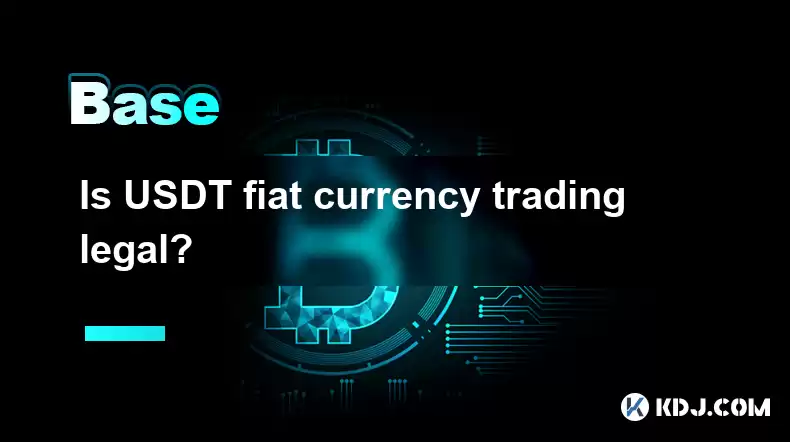
Is USDT Fiat Currency Trading Legal?
Key Points:
- Legality of USDT trading varies by jurisdiction.
- Some countries consider USDT a virtual currency, while others classify it as a security.
- Anti-money laundering (AML) and know-your-customer (KYC) regulations apply to USDT trading.
- USDT is pegged to the US dollar, making it a less volatile investment compared to other cryptocurrencies.
- USDT is used for various purposes, including remittances, stablecoin purchases, and margin trading.
Legality of USDT Trading
The legality of USDT fiat currency trading varies depending on the jurisdiction.
- United States: The Securities and Exchange Commission (SEC) has not classified USDT as a security, but it has been subject to investigations and enforcement actions related to fraud and manipulation.
- European Union: The European Securities and Markets Authority (ESMA) has classified USDT as a virtual currency, but it has issued warnings about the potential risks associated with it.
- China: The People's Bank of China (PBOC) has banned USDT trading.
- Other Countries: In many other countries, the legal status of USDT is unclear, but it is generally traded on unregulated exchanges.
Anti-Money Laundering and KYC Regulations
Due to its potential for money laundering and financial crime, USDT trading is subject to AML and KYC regulations in many jurisdictions.
- Registration: Exchanges that offer USDT trading must register with regulatory authorities and comply with AML and KYC requirements.
- Verification: Customers who trade USDT on regulated exchanges must provide personal information and undergo verification procedures, such as document submission and biometrics.
- Transaction Monitoring: Exchanges monitor USDT transactions for suspicious activity, and they may report large or unusual transactions to regulatory authorities.
Pegging to the US Dollar
USDT is pegged to the US dollar, which means that its value is designed to remain stable at $1.00. This pegging is maintained through arbitrage mechanisms, where traders profit from price discrepancies between USDT and the US dollar.
- Benefits: The stable value of USDT makes it attractive for investors who seek a less volatile investment compared to other cryptocurrencies.
- Risks: Depegging events can occur if there is a sudden loss of confidence in USDT or if the company behind it (Tether) fails to maintain the peg.
Uses of USDT
USDT is used for various purposes in the cryptocurrency ecosystem.
- Remittances: USDT is widely used for international remittances because it can be easily converted into local currencies and transferred quickly and inexpensively.
- Stablecoin Purchases: USDT is often used to purchase other stablecoins, such as USDC and BUSD, which are also pegged to the US dollar.
- Margin Trading: USDT is used as collateral in margin trading on cryptocurrency exchanges.
FAQs
Q: Is USDT legal in my country?
A: The legality of USDT varies by jurisdiction. It is recommended to check with the regulatory authorities in your country for the latest legal status.
Q: Are there risks associated with USDT?
A: Yes, there are potential risks associated with USDT, including depegging events, counterparty risk, and regulatory uncertainties.
Q: How do I protect myself when trading USDT?
A: To protect yourself when trading USDT, it is important to use regulated exchanges, store your USDT in a secure wallet, and conduct your own research before trading.
Q: What is the difference between USDT and other stablecoins?
A: USDT is pegged to the US dollar, while other stablecoins may be pegged to different currencies or assets. Additionally, the issuers of different stablecoins have varying levels of transparency and regulatory compliance.
Disclaimer:info@kdj.com
The information provided is not trading advice. kdj.com does not assume any responsibility for any investments made based on the information provided in this article. Cryptocurrencies are highly volatile and it is highly recommended that you invest with caution after thorough research!
If you believe that the content used on this website infringes your copyright, please contact us immediately (info@kdj.com) and we will delete it promptly.
- Token Buybacks, Onchain Data, and Developers: What's Buzzing in Crypto
- 2025-08-09 05:10:15
- Coinbase at Oppenheimer Conference: A Glimpse into the Future of Crypto Trading
- 2025-08-09 04:50:14
- Pepe Price Prediction: Can the Meme Coin Maintain Its Momentum?
- 2025-08-09 05:15:24
- Bitcoin, Ethereum, XRP in 2032: Crystal Ball Gazing or Calculated Prediction?
- 2025-08-09 04:30:14
- Bitcoin, Ethereum, and Support Levels: Navigating the Crypto Landscape
- 2025-08-09 04:30:14
- Roman Storm, Funding Effort, and the Looming Defense Retrial: A New York Minute on the Tornado Cash Case
- 2025-08-09 02:50:14
Related knowledge
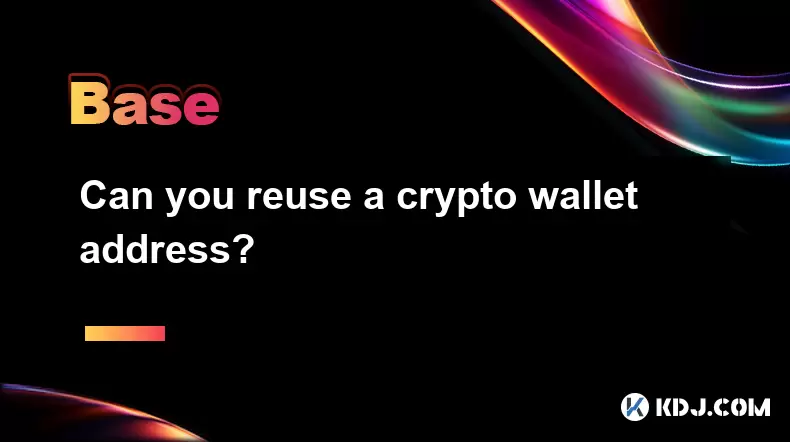
Can you reuse a crypto wallet address?
Aug 08,2025 at 03:49pm
Understanding Wallet Addresses in CryptocurrencyA crypto wallet address is a unique identifier used to send and receive digital assets on a blockchain...
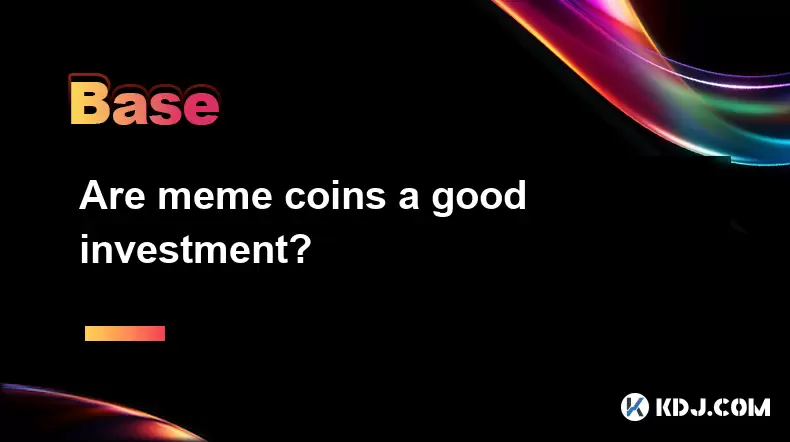
Are meme coins a good investment?
Aug 08,2025 at 11:36pm
Understanding Meme Coins and Their OriginsMeme coins are a category of cryptocurrencies that originated from internet humor or viral trends rather tha...
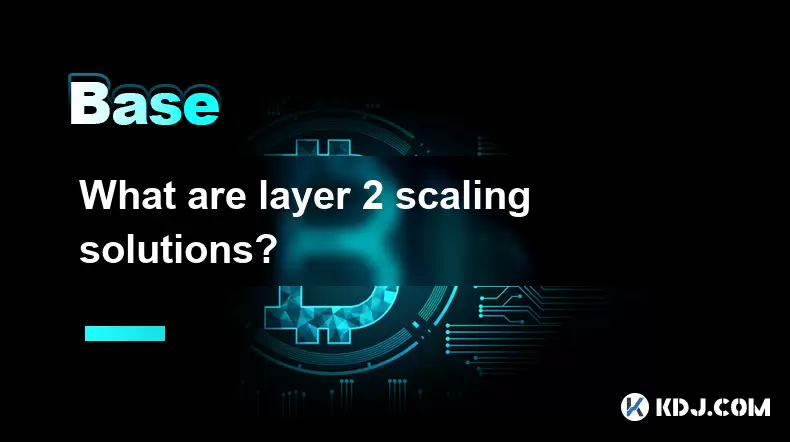
What are layer 2 scaling solutions?
Aug 09,2025 at 04:07am
Understanding Layer 2 Scaling Solutions in CryptocurrencyIn the world of blockchain and cryptocurrencies, scalability has long been a pressing challen...
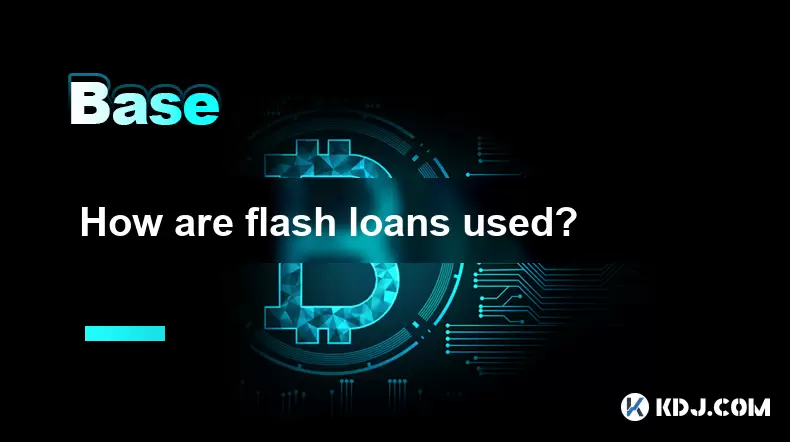
How are flash loans used?
Aug 08,2025 at 01:08pm
Understanding Flash Loans in Decentralized FinanceFlash loans are a unique innovation within the decentralized finance (DeFi) ecosystem, allowing user...
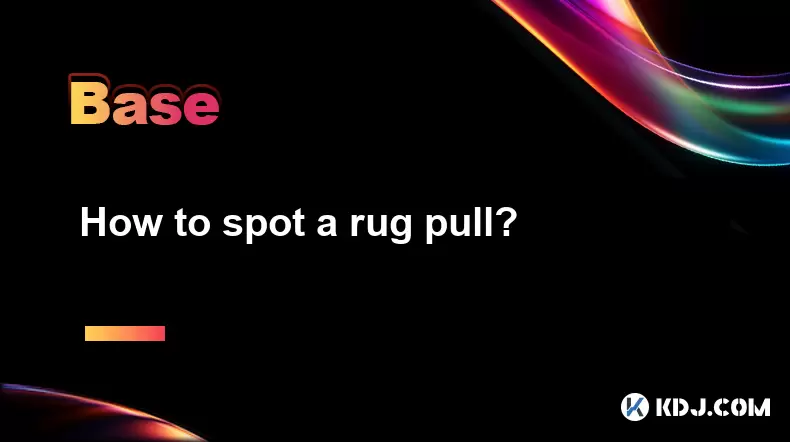
How to spot a rug pull?
Aug 08,2025 at 11:21pm
Understanding the Concept of a Rug PullA rug pull is a type of scam prevalent in the decentralized finance (DeFi) and cryptocurrency space where devel...
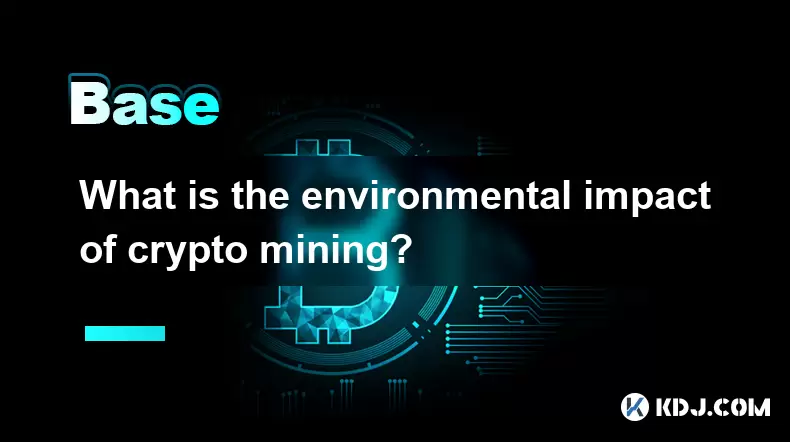
What is the environmental impact of crypto mining?
Aug 09,2025 at 12:28am
Energy Consumption of Cryptocurrency MiningThe environmental impact of crypto mining begins with its substantial energy consumption, primarily driven ...

Can you reuse a crypto wallet address?
Aug 08,2025 at 03:49pm
Understanding Wallet Addresses in CryptocurrencyA crypto wallet address is a unique identifier used to send and receive digital assets on a blockchain...

Are meme coins a good investment?
Aug 08,2025 at 11:36pm
Understanding Meme Coins and Their OriginsMeme coins are a category of cryptocurrencies that originated from internet humor or viral trends rather tha...

What are layer 2 scaling solutions?
Aug 09,2025 at 04:07am
Understanding Layer 2 Scaling Solutions in CryptocurrencyIn the world of blockchain and cryptocurrencies, scalability has long been a pressing challen...

How are flash loans used?
Aug 08,2025 at 01:08pm
Understanding Flash Loans in Decentralized FinanceFlash loans are a unique innovation within the decentralized finance (DeFi) ecosystem, allowing user...

How to spot a rug pull?
Aug 08,2025 at 11:21pm
Understanding the Concept of a Rug PullA rug pull is a type of scam prevalent in the decentralized finance (DeFi) and cryptocurrency space where devel...

What is the environmental impact of crypto mining?
Aug 09,2025 at 12:28am
Energy Consumption of Cryptocurrency MiningThe environmental impact of crypto mining begins with its substantial energy consumption, primarily driven ...
See all articles

























































































